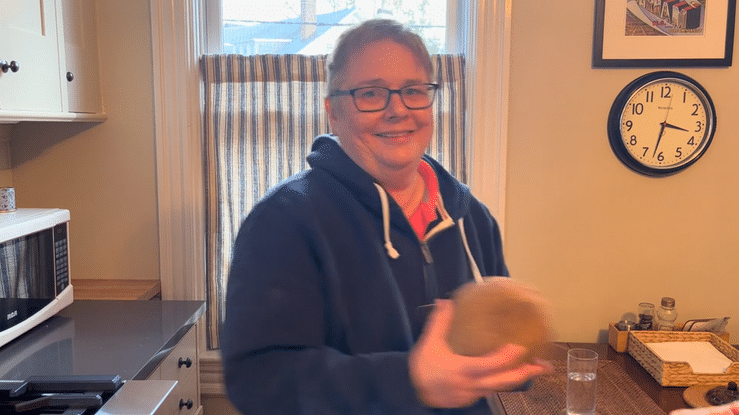There is this story — you probably know it — of a man who falls over the edge of a cliff and grabs on to a branch for dear life to keep from falling to the bottom of the ravine. In desperation he cries out for help, “Is anyone up there?” But no one answers. His desperation increasing, he calls out to God: “Oh God, are you up there? Send someone to save me!” And a voice from heaven says, “Let go of the branch.” The man hangs there over the ravine in fear and in silence, looking up to the edge of the cliff just out of reach and down to he yawning abyss below him. At last he takes a deep breath, looks up... and yells, “Is there anyone else up there?!”
We smile, we chuckle, with a knowing shake of the head because we have just heard an apt description of how often our own absolute trust in God actually hangs in midair.
True, there are some remarkable souls with great trust borne of mature faith in God. But for most of us mere mortals, our trust is limited — limited by our understanding of what trust in the Lord really is, what trust in the Lord is meant to accomplish.
When Jesus hung on the cross, taunting words were hurled at Him. “He trusted in God. Let God deliver him!” That caustic cynicism exposes a belief that a trustworthy God would keep God’s belovèd from all harm or failure.
Is that our definition?
Our Lord trusted that God would be present fully in times of joy, times of shattering suffering, and ultimately in the time on the other side of suffering as well. Such trust led our Lord to live a fearlessly full life as something held in hands other than His own. Do we likewise trust in the hands that will bear us all up through the best and through the most trying of times? Hands that will never let us down, but will gently set us down in place of peace and beauty at the last?
My go-to psalm in a myriad of circumstances in Psalm 131:
“O Lord, I am not proud;
I have no haughty looks.
I do not occupy myself with great matters,
or with things that are too hard for me.
But I still my soul and make it quiet,
like a child upon its mothers breast;
my soul is quieted within me.
O Israel, wait upon the Lord,
from this time forth for evermore.”
The Psalm quells the question, “Is there anyone else up there?” The Psalm in poetry says, “Let go of the branch.” These sacred verses are given to us so that we might live fully and fearlessly and abundantly. I commend them to you in trust that they will serve you well.
Yours in Christ,
The Rev. Joanne Epply-Schmidt, Associate Rector

























